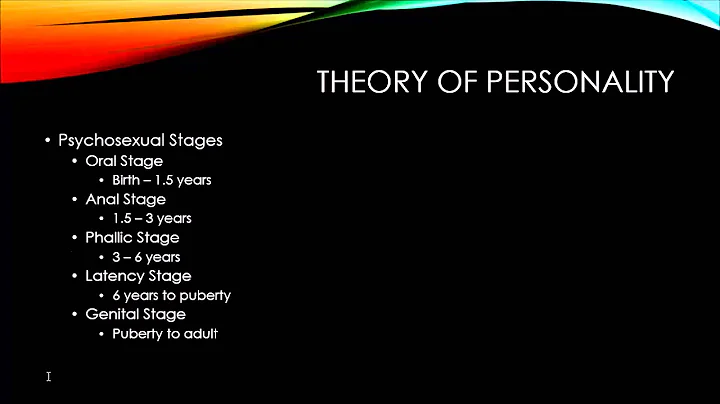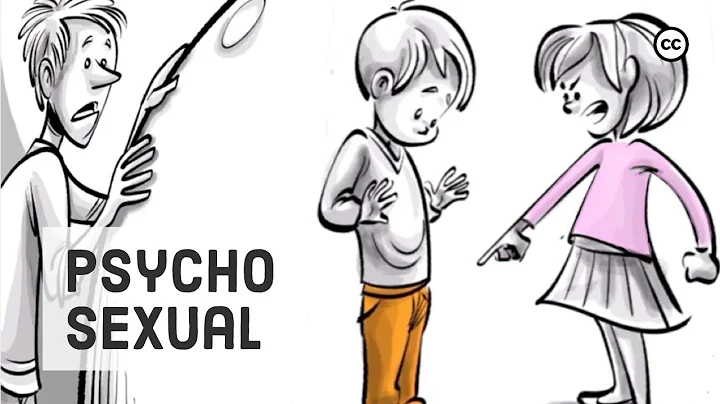
Earlier we talked about and let’s talk about psychoanalytic therapy (12) - Analysis and views on cognitive comprehension therapy
Since the author majored in RET, there must be many inadequate understandings of psychoanalysis and cognitive comprehension therapy. place, so today’s personal evaluation is entirely my personal opinion. You are welcome to point out any shortcomings and communicate and discuss together to make progress together.
Personal evaluation of psychoanalytic therapy
It is not an easy task to evaluate psychoanalysis, not to mention that the author is not majoring in this therapy. After the birth of Freud's theory, there were both praise from heaven and condemnation from hell. Judging from the general trend in recent years, psychoanalytic theory is losing its former dazzling glory and is increasingly falling into neglect.
On the positive side, several contributions of psychoanalytic therapy cannot be denied. It is the first to systematically explore human unconscious psychological phenomena, and the concept of unconsciousness has been accepted by orthodox psychology. Its analysis of adult personality structure contains many reasonable elements. It emphasizes the central role of the self in the personality structure and its integration, organization of experience, coordination, and control functions. This is consistent with the views of most contemporary personality theorists. It focuses on looking at the causes of personality development from a biological perspective. Although it has major biases, it also contains some important facts that are often ignored. Because no matter what, the earliest and most primitive desires of babies are biological desires, which cannot be denied.
Another contribution of psychoanalytic therapy is reflected in its historical role in psychotherapy. It was the first formal treatment system, and its emergence brought psychotherapy into a new historical period. Because of this first, it had a significant impact on various therapies that later emerged. Some therapies directly accepted certain ideas and principles from it, some drew inspiration from it, and some opposed and attacked it. Creating new things in the process, at this time, it stimulates innovation from the opposite side.
Psychoanalytic therapy has also been criticized in many ways. First of all, its efficacy is not very certain. Of course, there are differing views on the efficacy of psychoanalysis due to the inherent difficulties in conducting studies to identify the efficacy of psychotherapy, but in general there is agreement that it is not a very effective therapy. Secondly, it is a recognized fact that the treatment course is too long and the cost is too high. Coupled with its selection conditions (such as intelligence, education, etc.) for patients (those who are suitable for psychoanalytic therapy), only a very small number of patients with mental disorders are likely to become analysers. In fact, orthodox psychoanalytic treatment is a typical aristocratic treatment. In addition to the above-mentioned external flaws, there are also many criticisms in the theoretical system of psychoanalysis.
The theory of psychoanalysis has too strong a color of biological determinism. It simply emphasizes the role of man's biological nature, and man becomes a slave to his biological desires. Reason and will are just tools that directly or indirectly serve biological desires, and the self is the servant of the id. Although there is part of the truth here, psychoanalysis takes it as the whole, which feels like it is heading towards a fallacy.
What's more serious is that psychoanalytic theory has overemphasized the role of sexual instinct. It regards sexual drive as the basic driving force of psychological development and the basic cause of psychological disorders. This is not true. From a developmental perspective, although babies initially have only some basic physiological needs, these needs are not necessarily sexual. Freud actually attributed all people's happy emotional experiences to the origin of sexual pleasure, which is far from the understanding of contemporary emotional research. Moreover, when babies grow up a little, they begin to develop some social needs. Children interact with the environment (and new needs are constantly generated during the interaction) in such a complex and mutually reinforcing relationship. What develops in the process is by no means an unchanging interplay between sexual drives and environmental forces.
It is even more untrue to explain sexual disorders and sexual repression as the causes of all neurosis . Many people point out that the reason why Freud attached so much importance to the role of sex is related to the fact that he lived in Europe where the sexual morality of the Victorian era was dominant. The patient class he came into contact with mostly held Puritan sexual moral values, and sexual repression was relatively common. This led Freud to make erroneous generalizations. To disprove this Freudian view, one need only look at people in contemporary Western society and some non-ascetic cultures. In contemporary Western society, sex has become almost as casual as dressing and eating, but neurotics have not become less so. Some non-ascetic primitive tribes are not without their own neuroses. In fact, most contemporary analysts no longer attach special importance to the role of sexual factors, let alone regard them as the only cause.
Freud's neglect of the role of environment and social forces has also been criticized and corrected by contemporary analysts. Most contemporary therapeutic theories correctly see that social conflicts are the main cause of many psychological disorders. However, in the Freudian system, social forces are limited to family members; social forces only interact with children's sexual drives in an unchanged way. Interaction occurs, and the result of the interaction is only one unchanging psychological crux - the Oedipus complex. The complexity and diversity of conflicts have been shockingly simplified and formulaic, which is absolutely contrary to the facts.
Finally it must be said that Freud's methodology has been criticized more generally. His procedures for collecting, processing and interpreting data were completely inconsistent with the requirements of general scientific research. For example, his case sample is not random and his records rely on his and his patients' recollections. This cannot rule out the possibility that he consciously sought supporting evidence selectively based on his assumptions. In short, as Hall and Lin Kidd pointed out in 1970, Freud's work includes his conclusions, but does not include the data on which the conclusions are based, the methods used in analyzing the data, and his experience. A systematic description of the material. Because of this, an interesting situation arises regarding Freud's theory. On the one hand, many people (including some famous scholars) praise the brilliance of its genius and wisdom; on the other hand, most of this theory has not been accepted. Accepted by current mainstream psychology.
Let’s talk about psychoanalytic therapy. Thank you for reading. Everyone is welcome to follow and like, thank you!





















